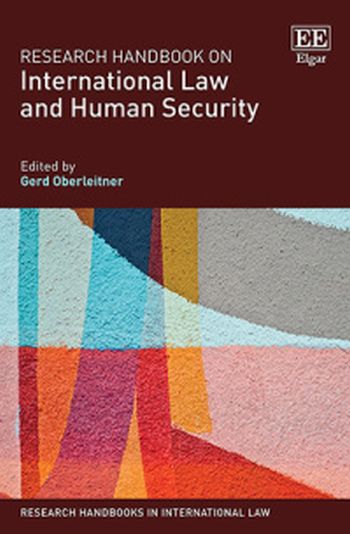
This comprehensive Research Handbook considers the place of human security, both in practice and as a concept, within international law, examining the preconditions for and consequences of applying human security to international legal thinking and practice. It also proposes a future international law in which human security is central to the law’s purpose.
Contributions by leading authors in the field, critically engage with 25 years of human security practice in different areas of international law and explore the challenges, successes and setbacks of realising human security in a state-based international legal order whilst re-conceptualizing central elements of international law, from a human security perspective. Organised around six core themes, the Research Handbook shows how human security can be used as an overarching framework to preserve peace, protect people and counter vulnerability through international law.
Progressive and engaging, this Research Handbook will be a key resource for scholars and students of public international law, security, and international relations, who wish to further their knowledge of human security as the central purpose of international law.